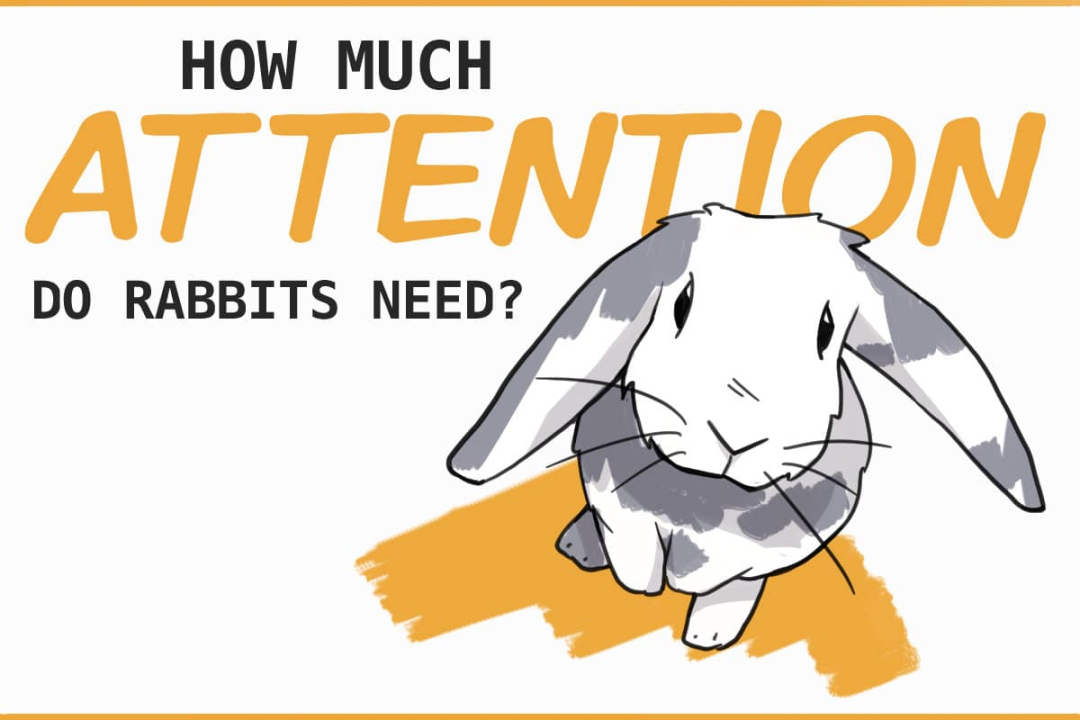How Much Attention Do Rabbits Need?
Rabbits are popular pets known for their adorable appearance and playful nature. However, it’s important to understand that rabbits are social animals that require a considerable amount of attention and care. In this article, we will explore the level of attention rabbits need to thrive and provide some useful tips for rabbit owners.

The Social Nature of Rabbits
Rabbits are highly social animals that naturally live in large groups called colonies. In the wild, they spend most of their time interacting with other rabbits, grooming each other, playing, and foraging for food. Therefore, it’s crucial to recognize and fulfill their social needs when keeping rabbits as pets.
Time and Interaction Requirements
Rabbits need daily interaction and playtime with their owners to stay happy and healthy. While the exact amount of attention varies depending on the rabbit’s personality and age, a general guideline is to spend at least 2-3 hours per day interacting with your rabbit. This time should include both physical and mental stimulation.
Physical interaction involves petting, grooming, and gentle play. Rabbits enjoy being stroked on their forehead, cheeks, and back, but it’s essential to approach them calmly and avoid sudden movements that might startle them. Grooming is another form of physical interaction that helps rabbits maintain a healthy coat and strengthens the bond between owner and pet.
Mental stimulation can be provided through various activities like providing toys, hiding treats for them to find, or even teaching them simple tricks using positive reinforcement. Engaging your rabbit’s mind with puzzles and challenges is essential to prevent boredom and keep them mentally sharp.
Exercise and Space Requirements
Rabbits are naturally active animals that need regular exercise to prevent obesity and maintain good physical health. In addition to interaction time with their owners, rabbits should have ample space to hop, run, and explore. A suitable home for a rabbit should have an enclosed area, such as a spacious pen or rabbit-proofed room, where they can exercise safely.
It’s advisable to let your rabbit out of their enclosure for supervised playtime in a larger area, such as a bunny-proofed living room or a secure garden. However, always be cautious of potential hazards like electrical cords, toxic plants, or small objects that they could chew on or swallow.
The Importance of Bonding
Bonding with your rabbit is a crucial aspect of meeting their social needs. Rabbits are known for their sensitive nature and can form deep emotional connections with their owners. Building trust and creating a strong bond with your rabbit will not only enhance their well-being but also make them more receptive to training and handling.
Spending quality time with your rabbit, talking softly to them, and offering treats can help establish a positive association and foster a strong bond. Additionally, rabbits are crepuscular animals, which means they are most active during dawn and dusk. Adjusting your schedule to spend more time with your rabbit during these periods can significantly contribute to their emotional well-being.
FAQs about Rabbit Attention:
1. How often should I interact with my rabbit?
It is recommended to spend at least 2-3 hours per day interacting with your rabbit. This time should include both physical and mental stimulation to keep them happy and healthy.
2. Can rabbits be left alone for long periods?
No, rabbits are social animals and require regular interaction and companionship. Leaving them alone for extended periods can lead to boredom, depression, and even behavioral issues.
3. Are there any specific toys that rabbits enjoy?
Yes, rabbits enjoy a variety of toys, such as wooden chew toys, cardboard tunnels, and puzzle feeders. Providing them with different textures and challenges can keep them mentally stimulated and entertained.
4. Can rabbits be trained like other pets?
Yes, rabbits can be trained using positive reinforcement techniques. They can learn to respond to their names, come when called, and even perform simple tricks with patience, consistency, and rewards.
Related Articles…
Copyright Notice:
The images displayed here are sourced from the internet, with copyrights held by respective owners. For removal of any copyrighted image, please email us.